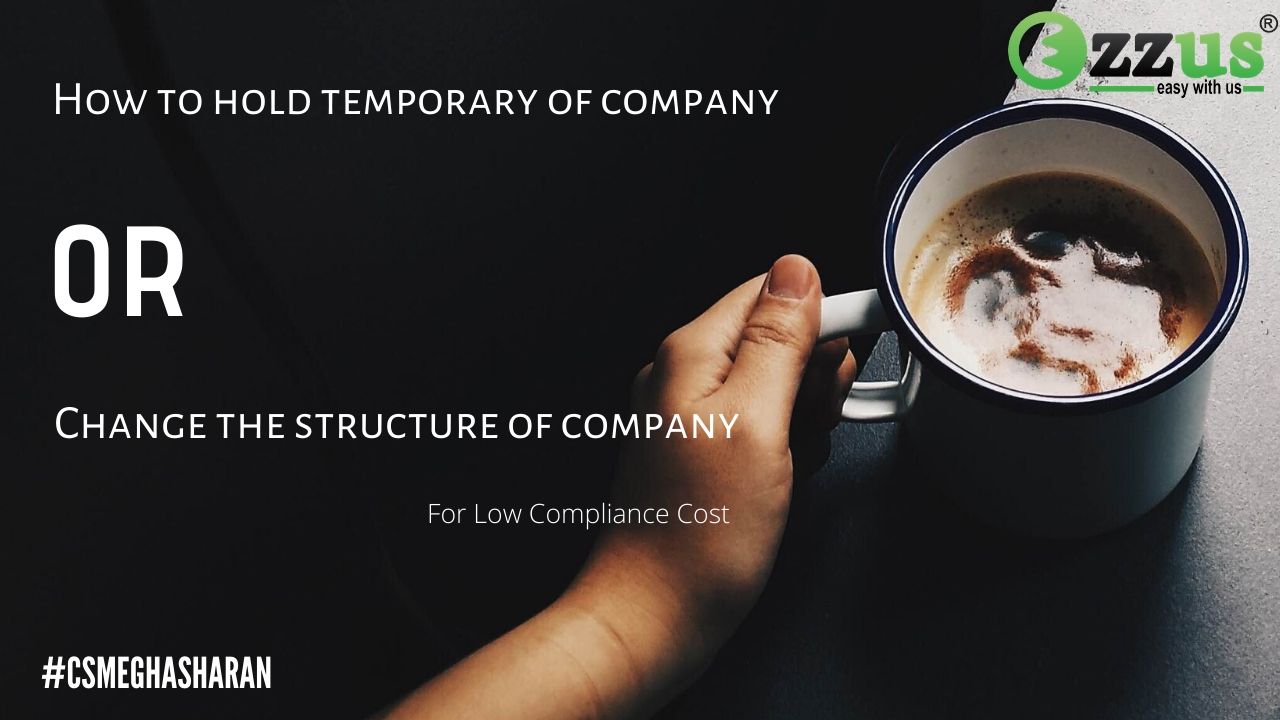Sometimes we register a company for a business idea that we wanted to implement, and for whatever reason it doesn’t work, we don’t even start work. There are also times where we register a company for a future project and often such companies are not actually operational.
There are various compliances that need to be followed after a business has been registered, and it takes a cost to satisfy them. Why would want to pay more for a business that doesn’t operate in the first place?
The Ways to Close/Winding Up of a company is Again cost making process and promoters have to again expend money to close the companies. but it may be happen that the reason behind the closer of the company is only the Complinace Cost.
As Already Discussed in other Articles for Closure of The Companies. We are now discussing the other alternatives for getting rid of the company which is incorporated.
Sell the Company
It is also a kind of voluntary winding-up to sell off a private limited business. This can be achieved by selling the shares of the company (selling the controlling shareholding of the company). Technically speaking, this is not an actual winding-up, but the shares are passed to another individual or company and the majority shareholders are discharged from their stocks and obligations.
The Company can be sold to some other person planning to Incorporate any company or requiring any company for some business/tender purpose.
At the Time of selling company:
- The Shareholding of the Company will be transferred to the new persons.
- The Directorship of the Company will be changed.
- Registered office Address can also be changed.
- If the Purchaser Requires, The Name, Object or capital of the Company can be changed.
APPLYING FOR “DORMANT STATUS”
A company which is a registered entity but is not currently active is called as a Dormant company. But The Company has to apply for this status.
Section-455 of Companies Act, 2013 talks about a New Provision Calls “DORMANT COMPANY”. This concept was not there in Companies Act, 1956. Another Name of this concept by Professionals is “ASSET SHIELDING CONCEPT UNDER COMPANIES ACT 2013”.
WHAT IS DORMANT COMPANY?
As per the Section 455 of the Companies Act 2013 the dormant company means a company which is formed or registered for the below objectives:
- Incorporated for future project;
- Hold an asset or intellectual property;
- Has no significant transaction;
- Is an inactive company.
A Dormant company:
- Can apply to revert to an active status company
- Cannot remain with the status of a Dormant company for more than five consecutive financial years.
A Dormant Company offers excellent advantage to the promoters who want to hold an asset or intellectual property under the corporate shield for its usage at a later stage.
If a company get status of dormant company there are less compliance in dormant company in comparison of active company. It will help to save cost of compliances for inactive companies.
REASONS FOR OBTAINING STATUS OF DORMANT COMPANY
A company is given dormant status for a variety of reasons, such as:
- when business owners are planning to start a business, to reserve a name for a company, it may be registered as dormant.
- If company owners intend to restructure a company, they may be given a dormant status.
- If an extended period of time is needed for the owner of the company on grounds of sickness, travel, maternity leave, sabbatical, etc.
Advantages of a dormant company
The advantages of dormant company are :-
- The company does not need to file two (2) forms for annual filing, i.e. MGT-7 and AOC-4 each year;
- no need to hold annual general meetings every year;
- no need to conduct and convene four (4) annual meetings of the Board of Directors, etc.
- A dormant company does not have to show cash flow statements in the company’s financial statements.
- the provision which relates to the rotation of the auditors does not apply to a dormant company
CONVERSION OF COMPANY INTO LLP
When a private Limited Company is not in compliance of Law and its requirements and planning to continue its business in less cost and compliances, The Company may Convert itself into LLP (Limited Liability Partnership).
REASONS FOR CONVERTING OF COMPANY INTO LLP
- Less compliance costs
- Audit required only if the turnover and contribution exceed Rs. 40 lakes and Rs. 25 lakes respectively.
- The maximum limit of shareholders is not limited in an LLP. The LLP can have any desired number of shareholders. However, the maximum number of shareholders is fixed in a private company.
- The partners will divide the income among themselves without attracting any additional tax, i.e. Tax on payment of dividends.
- In the case of LLP, a number of strict rules banning the Company from taking loans from individuals or giving loans to the respective Director are not in effect.
- In the case of LLP, there are no restrictions on related party transactions.
- Management of funds depends entirely on the members’ wish.
- The Finance Bill 2010 stated that the capital gain tax will not be levied on conversion to an LLP if certain conditions are adhered to.
ADVANTAGES OF CONVERSION OF COMPANY INTO LLP
The following are some of the implication on the conversion of a company into an LLP:
- The private company shall be considered to have been dissolved.
- The name of the private limited company shall be deleted from the registry of the Registrar of Companies.
- All property, assets, interests, rights, privileges, liabilities and responsibilities of a private limited company shall be transferred to the LLP upon conversion.
- The transfer has no effect on current liabilities, obligations, agreements, contracts or continued employment.
- Permits or licenses given to the Private Limited Company under any written legislation and which are valid before the conversion date will not be automatically transferred to the Limited Liability Partnership. The terms of the license would be the deciding factor here. Thus, in most situations, the promoters will have to obtain fresh GST registration or FSSAI registration.
DISCLAIMER: The entire contents have been developed on the basis of relevant information and are purely the views of the authors. Though the authors have made utmost efforts to provide authentic information however, the authors expressly disclaim all or any liability to any person who has read this document, or otherwise, in respect of anything, and of consequences of anything done, or omitted to be done by any such person in reliance upon the contents of this document. Reader should seek appropriate counsel for their own situation. I shall not be held liable for any of the consequences directly or indirectly.
Any other suggestions /opinions are welcomed.
Regards
Author: CS Megha Sharan (Company Secretary in Practice)
Contact No 9650082009
Email: ezzusindia@gmail.com
Ezzus India Team




Comment here